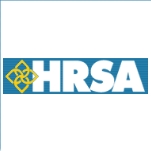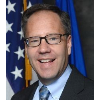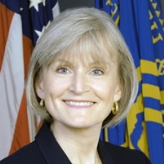The Health Resources and Services Administration (HRSA), an agency of the U.S. Department of Health and Human Services, is responsible for improving access to healthcare for those who are uninsured or otherwise marginalized and/or medically vulnerable. The agency is responsible for identifying areas of the country that have a shortage of primary and dental care, and medical professionals. HRSA administers about 90 percent of its funding in grants directly to states, public and private healthcare providers - including health professions training programs and a network of 1,000 health clinics.
For a full chronology of legislation and development relating to the HRSA, please see
.
A division of HRSA, the Office of Rural Health Policy (ORHP) was established in 1987, subsequently authorized in Congress and allocated to the HRSA. The Office is charged with informing and advising the Department of Health and Human Services on issues affecting rural healthcare, coordinating related activities with the Department and maintaining a national clearinghouse.
President's FY 2009 Budget Proposal for HRSA Continues March to Expand
(HRSA News)
HSRA's Electronic Submission User Guide
(by Robert F. Kennedy Jr. Rolling Stone)
Testimony on Public Health Service Act Programs and Reauthorization
(by Philip R. Lee, House Committee on Commerce, Subcommittee on Health and Environment)
HRSA training fund cuts could worsen work force shortages: Proposed budget decreases raise concern
(by Kim Krisberg, Nation’s Health)
(by Matt Mientka, U.S. Medicine)
- Table of Contents
- Overview
- History
- What it Does
- Where Does the Money Go
- Controversies
- Suggested Reforms
- Comments
- Leave a comment


Jim Macrae, a long-time employee of the Department of Health and Human Services (HHS), became acting administrator of the Health Resources and Services Administration (HRSA) in April 2015 upon the departure of Mary Wakefield to become acting Deputy Director of HHS.
Macrae attended Illinois Wesleyan University, graduating in 1986 with a B.A. in sociology. He followed that up with a Master’s degree in the same subject from Duke University and subsequently earned a Master’s in public policy from Harvard.
His first job with HHS was as a presidential management intern, working with Medicare and Medicaid programs and in the Office of Planning and Evaluation.
In 1992, Macrae became a regular employee of the department, working in the Bureau of Primary Care. The bureau works to provide primary medical care, particularly preventative care, for underserved populations through neighborhood clinics. Macrae rose to be Director of the Office of State and National Partnerships in the bureau.
In 2000, Macrae became Associate Administrator for the Office of Performance Review in HRSA, overseeing agency staff around the country. He returned to the Bureau of Primary Care in 2006, this time as its leader. He also oversaw the School-Based Health Center Capital Program, which provides funding for equipment for school-based health centers. He held that job until becoming HRSA’s acting administrator.
-Steve Straehley
To Learn More:

Overseeing the Health Resources and Services Administration (HRSA) is Mary Wakefield, a former nurse, congressional staffer and professor regarded as an expert in rural health care, patient safety, Medicare payment policy, workforce issues and public policy. Wakefield was appointed to the position by President Barack Obama on February 20, 2009.
Profiles in Leadership: Mary K. Wakefield, PhD, RN, FAAN (by Patricia Stille Lederman, Healthcare Staffing and Management Solutions)
- Latest News
- D.C. Public Schools will Teach all Second-Graders to Ride a Bike
- New Rule in Germany Limits Sales of Sex-Themed E-Books to 10pm to 6am
- What Happened to the 6-Year-Old Tibetan Boy the Chinese Government Kidnapped 20 Years Ago?
- U.S. Ambassador to Turkey Photoshops his Hair Color to Mock Turkish Mayor
- Mystery Artist Calls Attention to Unfixed Potholes by Drawing Penises around Them
The Health Resources and Services Administration (HRSA), an agency of the U.S. Department of Health and Human Services, is responsible for improving access to healthcare for those who are uninsured or otherwise marginalized and/or medically vulnerable. The agency is responsible for identifying areas of the country that have a shortage of primary and dental care, and medical professionals. HRSA administers about 90 percent of its funding in grants directly to states, public and private healthcare providers - including health professions training programs and a network of 1,000 health clinics.
For a full chronology of legislation and development relating to the HRSA, please see
.
A division of HRSA, the Office of Rural Health Policy (ORHP) was established in 1987, subsequently authorized in Congress and allocated to the HRSA. The Office is charged with informing and advising the Department of Health and Human Services on issues affecting rural healthcare, coordinating related activities with the Department and maintaining a national clearinghouse.
President's FY 2009 Budget Proposal for HRSA Continues March to Expand
(HRSA News)
HSRA's Electronic Submission User Guide
(by Robert F. Kennedy Jr. Rolling Stone)
Testimony on Public Health Service Act Programs and Reauthorization
(by Philip R. Lee, House Committee on Commerce, Subcommittee on Health and Environment)
HRSA training fund cuts could worsen work force shortages: Proposed budget decreases raise concern
(by Kim Krisberg, Nation’s Health)
(by Matt Mientka, U.S. Medicine)
Comments


Jim Macrae, a long-time employee of the Department of Health and Human Services (HHS), became acting administrator of the Health Resources and Services Administration (HRSA) in April 2015 upon the departure of Mary Wakefield to become acting Deputy Director of HHS.
Macrae attended Illinois Wesleyan University, graduating in 1986 with a B.A. in sociology. He followed that up with a Master’s degree in the same subject from Duke University and subsequently earned a Master’s in public policy from Harvard.
His first job with HHS was as a presidential management intern, working with Medicare and Medicaid programs and in the Office of Planning and Evaluation.
In 1992, Macrae became a regular employee of the department, working in the Bureau of Primary Care. The bureau works to provide primary medical care, particularly preventative care, for underserved populations through neighborhood clinics. Macrae rose to be Director of the Office of State and National Partnerships in the bureau.
In 2000, Macrae became Associate Administrator for the Office of Performance Review in HRSA, overseeing agency staff around the country. He returned to the Bureau of Primary Care in 2006, this time as its leader. He also oversaw the School-Based Health Center Capital Program, which provides funding for equipment for school-based health centers. He held that job until becoming HRSA’s acting administrator.
-Steve Straehley
To Learn More:

Overseeing the Health Resources and Services Administration (HRSA) is Mary Wakefield, a former nurse, congressional staffer and professor regarded as an expert in rural health care, patient safety, Medicare payment policy, workforce issues and public policy. Wakefield was appointed to the position by President Barack Obama on February 20, 2009.
Profiles in Leadership: Mary K. Wakefield, PhD, RN, FAAN (by Patricia Stille Lederman, Healthcare Staffing and Management Solutions)
- Latest News
- D.C. Public Schools will Teach all Second-Graders to Ride a Bike
- New Rule in Germany Limits Sales of Sex-Themed E-Books to 10pm to 6am
- What Happened to the 6-Year-Old Tibetan Boy the Chinese Government Kidnapped 20 Years Ago?
- U.S. Ambassador to Turkey Photoshops his Hair Color to Mock Turkish Mayor
- Mystery Artist Calls Attention to Unfixed Potholes by Drawing Penises around Them





Comments